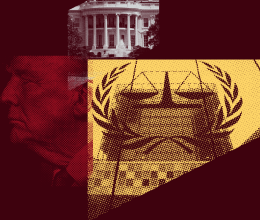As you may have seen (or heard, or read) the City of Portland adopted a new ordinance this week governing median strips. If you listened to the debate at the city council meeting, you could be forgiven for thinking that this new ordinance was designed to prevent dangerous or threatening panhandling, or to restrict panhandling in general. It isn't.
The new Portland ordinance actually bans anyone from being in any median strip anywhere in Portland for any reason other than crossing from one side of the road to the other. Holding a sign on election day? Illegal. Holding a petition to collect signatures? Illegal. Talking with a friend that you happen to run into while crossing the street? Illegal. And while you may be troubled by the site of panhandlers in some of Portland's busiest thoroughfares, this ordinance does not simply apply to Marginal Way or Forest Avenue--it applies to every median strip in the city, even the grassy ones in Stroudwater or Deering that had previously only been used by kids for lemonade stands.
This is a real problem. Cities can regulate the use of public streets and sidewalks, even where the First Amendment is involved, but this new ordinance isn't regulation--it is a total ban on free speech activity. Ironically, protesters and demonstrators can make arrangements to march down the middle of the street to express views on matters of public concern--there are rules they have to follow, but if they do they can have their march. Marching in the streets has been one of the most important ways that people demonstrate for causes they believe in--civil rights, voting rights, opposition to wars. Now, in Portland, residents will still be able to march down the middle of the street, as long as they don't go onto the medians, which are off limits. That can't be right.
Seeing panhandlers standing on the median strip makes many people uncomfortable, but as Dee Clarke from Homeless Voices for Justice told the city council on Monday, "I can tell you from experience that it is much more uncomfortable to experience poverty than it is to witness poverty." People don't stand on median strips in the blazing sun or freezing snow because it is a great way to pass the hours; they do it because they feel that they have no alternative. And there are already laws against people being intoxicated in public, blocking traffic, or threatening motorists.
The ACLU of Maine informed the city council and the city's attorney that we were concerned about the constitutionality of the proposed ordinance, but the city adopted it anyway. The ACLU of Maine is here to protect the First Amendment rights of all the people of Maine, and that includes making sure that public spaces remain free and open to the public.










